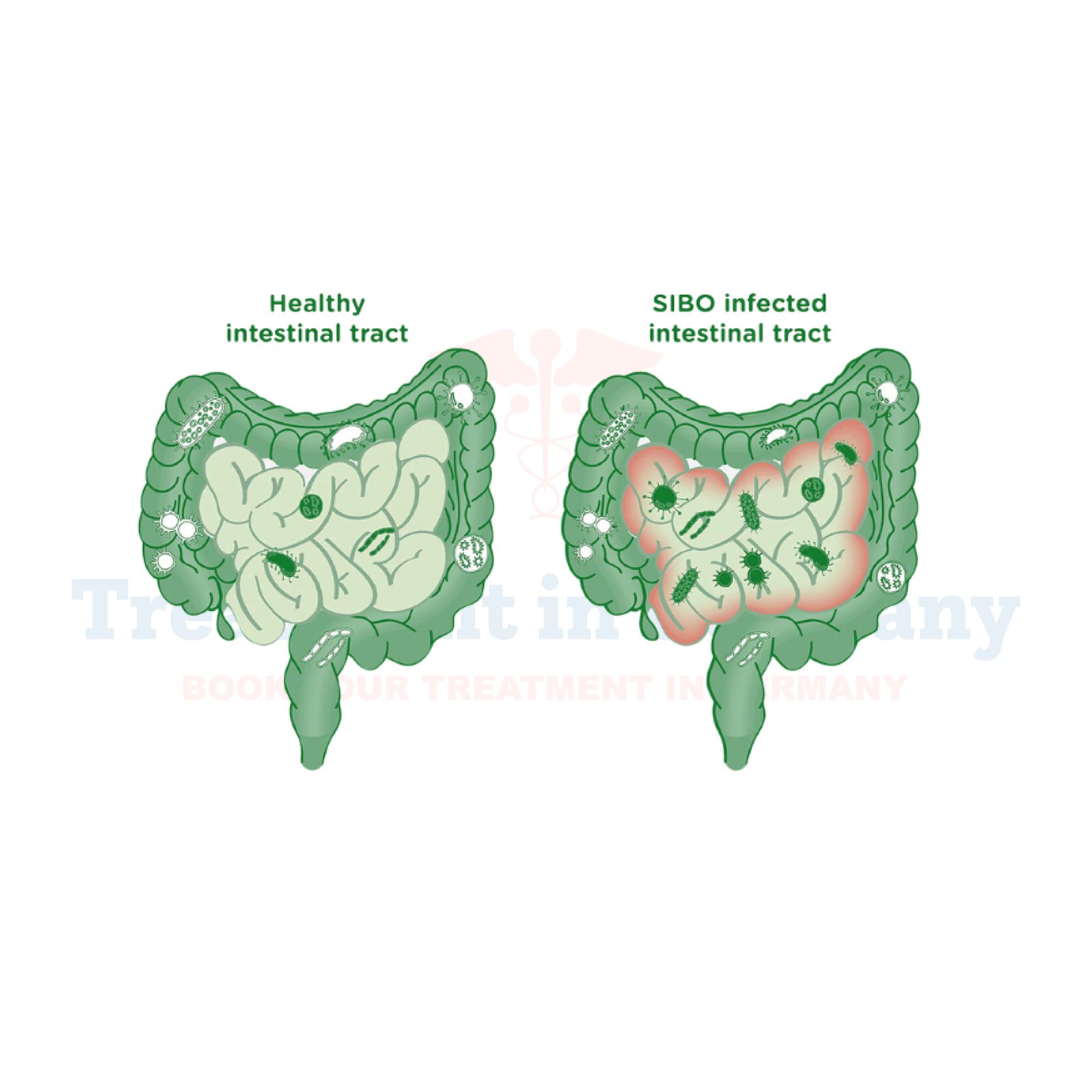What is Small Intestinal Bacterial Overgrowth (SIBO):
Small Intestinal Bacterial Overgrowthh, commonly known as SIBO, is a condition characterized by an abnormal increase in the number and/or type of bacteria in the small intestine.
Typically, the small intestine has a relatively low bacterial population compared to the colon. However, in SIBO, bacteria from the colon migrate upwards into the small intestine, leading to various gastrointestinal symptoms and complications.
Side effects of Small Intestinal Bacterial Overgrowth (SIBO):
SIBO can manifest with a variety of symptoms, including but not limited to:
- Chronic diarrhea
- Abdominal pain or discomfort, especially after meals
- Bloating and excessive gas
- Fatigue and weakness
- Nutritional deficiencies due to malabsorption of nutrients
- Weight loss
How is Small Intestinal Bacterial Overgrowth (SIBO) diagnosed?
Diagnosing SIBO typically involves a combination of clinical evaluation and specialized tests. Some common diagnostic methods include
- Hydrogen breath test: This test involves drinking a solution containing a sugar substance and then measuring the levels of hydrogen in the breath over a period of time. Elevated levels of hydrogen indicate bacterial overgrowth in the small intestin
- Small intestine aspiration: In this procedure, a sample of fluid from the small intestine is collected and analyzed for bacterial overgrowth.
- Endoscopy: A flexible tube with a camera is inserted through the mouth or nose into the small intestine to visually inspect the lining for signs of bacterial overgrowth.
Potential treatments of Small Intestinal Bacterial Overgrowth (SIBO):
Treatment for SIBO aims to reduce the bacterial overgrowth and alleviate symptoms. Depending on the severity of the condition, treatment options may include:
- Antibiotics: A course of antibiotics is often prescribed to eradicate the excess bacteria in the small intestine. Rifaximin is a commonly used antibiotic for treating SIBO due to its limited absorption and high effectiveness in the small intestine.
- Probiotics: Certain strains of probiotics may help restore a healthy balance of gut bacteria and reduce symptoms of SIBO. However, the use of probiotics in SIBO treatment is still under investigation, and their efficacy may vary.
- Dietary modifications: Following a low-FODMAP diet, which restricts certain types of carbohydrates that can ferment in the gut and exacerbate symptoms, may provide relief for some individuals with SIBO. Working with a registered dietitian can help you develop a customized dietary plan to manage your symptoms.
- Lifestyle changes: Making lifestyle modifications such as stress management techniques, regular exercise, and adequate sleep may help support overall gut health and reduce the risk of SIBO recurrence.
👉 Contact us for further information and receive acomplimentary consultation.


.webp)
 (1).webp)

.webp)
 (1).webp)


.webp)
 (1).webp)

.webp)
 (1).webp)
